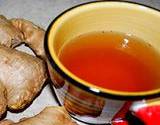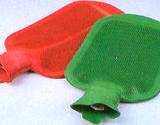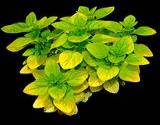|
Grandma's Flatulence
|
 |  |  |
There are so many phrases for flatulence, like passing gas, farting, smelly farts and little toots. Whatever you choose to call it, it can cause intense colicky stomach pains. Face it, everybody farts and it happens everyday. Research has proven that women passes gas just as much and often as men. But then again, women are a bit more discreet about it. You don't see too many women going around a room asking someone to pull their finger!
Although, passing gas can be a distressing social embarrassment, it is not a symptom of a serious disease. Often something as simple as swallowing too much air can be the rot of intestinal gas. (Interestingly, excessive air intake also causes belching.) However, too heavy a meal, lactose intolerance and irritable bowel syndrome can also be linked to flatulence. Bottle-feed babies are a great example of swallowing air and dealing with gas buildup. All of a sudden a baby will draw its little legs up tight and began crying in pain. Before you know it you'll start hearing their little toots and you know relief is on the way.
It all starts in the large intestine where incomplete digested carbohydrates are fermented by intestinal bacteria. The fermentation releases the offending gases, including nitrogen and hydrogen sulfide, which are usually responsible for the unpleasant odor. If gases cannot escape naturally, because of temporary blockage, for example, an uncomfortable feeling of fullness and pressure can develop, often accompanied by painful intestinal spasms.
Causes of Flatulence
- Gas production
- Inflated intestine
- Fermentation
- Intestinal spasm
 |  |  |
Natural Flatulence Remedies
Of course, note which foods you react to when you experience gas problems and try to avoid these. Eat in moderation and be mindful of your food choices.
In addition, you can also try medicinal teas, warm compresses, and natural medicines to help you effectively prevent or control flatulence.
Genle stomach massage eases intestines: Lie on your back and with a flat palm stroke your stomach slowly in a clockwise motion. This follows the course of the intestines and stimulates intestinal movement, so gas bubbles loosen up.
More effective is a "wind slave": Place 2 drops each of anise, fennel, clove and caraway essential oil in ¼ teaspoon of olive oil. Massage into the abdomen and cover with hot-water bottle or warm compress.
Warmth loosens up flatulence: Hot, damp compresses with vinegar diluted in water alleviate gas pains and relax the cramped muscles of the intestines. A hot-water bottle on the abdomen also relieves acute flatulence.
Movement calms the intestine: Taking a walk can clear up painful gas. Wear clothes that don't constrain your abdomen: tight clothes just make matters worse. Another simple, effective exercise: Lie on your back and bicycle your legs in the air.
In the Kitchen: Use marjoram, caraway, fennel, coriander, aniseed, rosemary and ginger in your cooking. These promote digestion, relax the intestinal muscles and inhibit embarrassing gas. Cabbage and onion, which cause gas, are traditionally flavored with caraway to counteract that effect. Dried beans also often cause gas. To remove their gas-causing carbohydrates, throw out the water that you soaked them in and use fresh water when you boil them.
Try Juniper berries: Juniper is known to settle digestive upset and relieve colic. For an easy remedy, thoroughly chew a few juniper berries after meals. Their essential oil can help mitigate annoying, foul-smelling intestinal flatus that sometimes escapes uncontrollably.
 |  |  |
Medicinal Teas and Home Remedies
Naturally Relieve Flatulence
For acute symptoms: Antispasmodic plants like angelica root, chamomile, coriander, caraway, sage, and peppermint help force the air out of the intestines:
Try these tea mixtures:
- 1 scant ounce crushed fennel seeds
- 1 scant ounce crushed caraway seeds
- 1 scant ounce chamomile
- 1 scant ounch of peppermint leaves
Brew 1 heaping teaspoon of the mixture with 1 cup of boiling water. Steep for 10 minute; strain and drink 1 cup 3 times daily after meals.
Warning Peppermint tea or teas with peppermint as an ingredient should never be given to infants or young children, they may have an adverse reaction to the menthol.
Try this recipe for bloating:
- 1 ½ ounce chamomile blossoms
- 1 ½ ounce yarrow
Pour 1 cup of boiling water over 1 teaspoon of the mixture. Steep for 5 minutes and strain. Drink 1 cup 3 times daily.
Home Remedies
Aniseed milk
Aniseed mile tastes good and loosens up flatulence. Bring slowly to a boil 1 teaspoon of crushed aniseed with 1 cup of milk. Strain off seed and drink while hot.
Acidophilus
To combat unhealthy intestinal bacteria, take ¼ teaspoon of acidophilus powder in water twice a day.
Digestive enzymes
When digestive enzymes are lacking, food is poorly digested and forms gases. Drink papaya juice or pineapple juice before each meal. You can also take enzyme supplements with meals.
|
|
DISCLAIMER:
The statement's made here have not been approved by the Food and Drug Administration. These statements are not intended to diagnose, treat or cure or prevent any disease. This notice is required by the Federal Food, Drug and Cosmetic Act.
Return from Flatulence Natural Remedies to Grandma's Ailments and Treatments Guide
Return to Grandma's Wisdom Home





